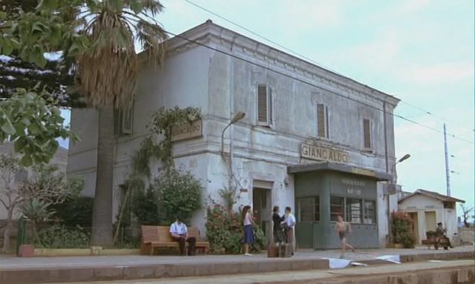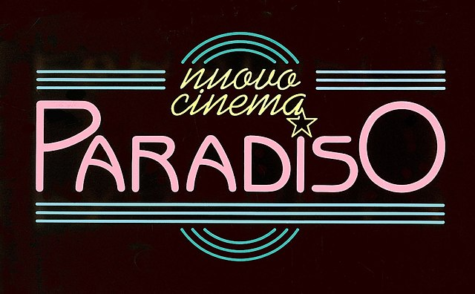The Beauty of Italian Film: Giuseppe Tornatore’s ‘Cinema Paradiso’
‘Cinema Paradiso’ has accomplished what few films have pulled off, by combining the nostalgia of entertainment with a deep perspective on life.
francescosaverio50, Public domain, via Wikimedia Commons
Here is an image of Young Toto looking upon the vibrancy of the reels that have been censored by the priest.
The work of Giuseppe Tornatore, one of Italy’s premier film directors and screenwriters, has been lauded for years. His 1988 film Cinema Paradiso, in particular, has been appraised as amongst the most critically acclaimed works of art in Italian film history.
The heart of this film lies in the relationship between two boys, the younger, named Salvatore, and the older, named Alfredo, who serves as his father figure and mentor. Salvatore, who has adopted the loving nickname of Toto, is introduced to film from a very young age. For hours, Alfredo teaches Salvatore the art of projecting films, and the two begin to share a deep love and passion for cinema. Salvatore spends countless hours in the cinema, watching films and learning from his newfound master.
Cinema has always been an important part of Italian culture, and the country has also contributed significantly to the world of art and culture. Italy has the distinction of having the oldest film festival in the world, known as the Venice Film Festival, which first started in 1932. Italian cinema has since made significant contributions to the creation of the neorealist movement in the 1940s by pioneering films that focused mainly on the struggles of everyday people.
This theme is clearly represented in Cinema Paradiso as the world of theater also becomes a central part of Salvatore’s life as well as the people in his small town. The town theater serves as a gathering place for the community, a source of inspiration and entertainment, while also being a refuge from the realities of their daily lives. The film beautifully captures the magic of cinema with its simultaneous ability to transport us from another time and place.
As Toto grows older, he begins to question his future and whether or not he wants to stay in his small town or pursue his dreams elsewhere. The film portrays the struggle between tradition and modernity, as Salvatore grapples with the idea of leaving behind the comforts of his hometown and pursuing his creative passion.
The film’s climax is a powerful and emotional tribute to the greatness that film has and the memories it can create. As Salvatore comes back to his hometown after years of failing to return, following the orders of Alfredo, he comes to terms with the duplicity of life. Salvatore comes to Alfredo’s funeral and is presented with a gift from his old friend, a reel of film containing all the censored kissing scenes that Alfredo had been ordered to cut by the town priest over the years. This touching moment is a reminder of the sacrifices and dedication that goes into the creation of cinematic magic and masterpieces. The film’s themes extend far beyond just the importance of cinematography.
It explores the confines of love, the love between Toto and his parents, the love between Toto and his childhood sweetheart Elena, and the love between Toto and Alfredo. The significance of the themes of the movie persist as loss and grief become a touching subject for Salvatore to deal with. The viewer is reminded that while movie screens have the power to surpass all expectations, they also have the ability to timelessly survive. As Toto himself exemplifies the representation of following one’s dreams and ambitions, it becomes all too clear that shooting for the stars doesn’t mean one will remain happy.
Instead Tornatore’s work teaches the viewer to be content with everything on a step by step basis. The flow of all life isn’t always smiles, so one needs to learn to work with a mindfulness that every second is so important.

(Photo Credit: Zappatore Libero, CC BY-SA 4.0 <https://creativecommons.org/licenses/by-sa/4.0>, via Wikimedia Commons)
Cinema Paradiso is one of most beautiful films of all time, and its impact reached into the Italian film industry as well, in a variety of ways. Primarily, it had a strong economic impact by revitalizing the Italian film industry and increasing investment in the arts across the country.
Tourism in fact has been another factor that many credit to the film’s success, as people continue to visit the town of Giancaldo, where it was set. The town itself has become a popular destination for the people who want to experience the same atmosphere that has been depicted in the film.
Its impact has also been seen in Italian’s national pride towards Cinema Paradiso. The film’s success at international film festivals and its Academy Award win in 1989 boosted the image of Italy in the world and showed the nation’s full capabilities in terms of their country’s filmmaking strengths.
This sense that Cinema Paradiso is a special film is shared by people the world over. In an interview that I conducted with Mr. Walter Giorgis-Blessent, one of the World Language teachers of Italian, Spanish and French here at Bronx Science, I asked him a few questions about what makes this movie so special to so many people.
Mr. Giorgis-Blessent stated that he relates this movie to the importance of cinema and noted that the movie itself is a flashback after the war when people in Italy didn’t really have access to television, while the cinema was a place where people could get together to socialize.
Mr. Giorgis-Blessent touched on the ability and flexibility of the emotional response he also first had when watching the movie and how important it was to him. “This movie represents change. People love stories and talking about news, and at that time, talking about the war. They loved melodramatic scenes that made them cry.” For his own personal emotional response, Gorigos-Blessent felt that he initially loved the movie because he himself is someone of Italian descent and he knew that this movie “transcended the cinematic scene, allowing me to cry, laugh and scream.”
The movie gives viewers the opportunity to see Toto grow up, making them feel like they can be in his shoes and remind themselves of the steps they once took before. “Growing up, we discover our passions, and Toto is a perfect symbol for pursuing what matters the most to us,” Mr. Giorgis-Blessand said. When I asked him if there was any specific character he felt connected to, he he said that felt that even if there no one character he resonated directly with, he had wished the movie ended in a place where Toto would have been able to be together with Elena.
“This movie offers a place for younger generations to see what makes great movies from the past so amazing. It can teach good feelings and the value of family intertwined with community,” Mr. Giorgis-Blessent said. He himself went to these types of cinemas as a child and he personally believes that without them, the world of art has taken a shockingly different direction from where it once was.
No matter the personal impact the film has had, Cinema Paradiso offers a place for so many people to rethink past memories. It offers a place for people to revisit the history and culture of Italy. It offers passion and a sense of purpose to critics, moviegoers and fans alike. Pictures alone can speak a thousand words, but a film can speak billions to millions across the world. Cinema Paradiso is constant reminder of this.
To watch Cinema Paradiso on Vudu (rental fee required), click HERE.

Cinema Paradiso is one of most beautiful films of all time, and its impact reached into the Italian film industry as well, in a variety of ways. Primarily, it had a strong economic impact by revitalizing the Italian film industry and increasing investment in the arts across the country.
Sud Paul is a Features Section Editor for ‘The Science Survey.’ He is interested in journalistic writing because it provides perspective into the duality...











